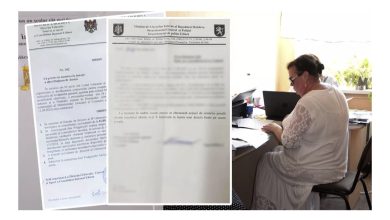BC: Some TV broadcasters refuse to publish sources of funding, citing commercial secrecy

Some TV channels in the Republic of Moldova did not indicate their sources of funding and investments in their annual reports to the Broadcasting Council, arguing that they refused on the grounds of “commercial secrecy” and “confidential information”. The analysis was carried out by BC member Ruslan Mihalevschi and presented at the end of May.
According to the legislation, private media service providers are bound to publish on their websites and submit to the BC annually, by February 1, an activity report including the name, nationality of the beneficiary owner(s), description of the ownership structure, organization chart and share capital of the media service provider, sources of financing of the audiovisual media service and information on the realization of the audiovisual media service concept for the previous year of activity.
The BC reported that in 2022, the Authority received the annual activity reports of 64 TV media services, submitted by 57 private providers (some of them hold two licenses each).
According the analysis of the annual reports for 2021 of TV media service providers, carried out by Ruslan Mihalevschi, ten TV channels consider the data of funding sources to be “confidential” or a “commercial secret”. These are NTV Moldova, Cinema 1, PEH TV, RTR Moldova, ITV, Bravo TV, Accent TV, Primul in Moldova, ProTV Chisinau and Tezaur TV.
Four TV channels indicated that they had no sources of funding or investment in the last year – Gurinel TV, Popas TV, ATV Coguk and ATV.
Mihalevschi noted that media service providers understand differently what information they should submit under the heading on sources of funding. “Some provided detailed information about funding sources. For example, Elita TV provided data on revenues and funding sources for media services with exact amounts (service provision, sales, grants, etc.). Generally, this provider produced one of the most complete and detailed annual reports. Other media service providers presented general figures or percentages by funding sources (domestic, foreign). Another group of media service providers limited themselves to general words (e.g. “From own commercial activity”, “Advertising sales, commercial productions”) without exact data”, said Ruslan Mihalevschi.
In this context, concerning the decision of media service providers not to expressly indicate the sources of funding, Ruslan Mihalevschi noted that, according to the Civil Code, “the holder of the commercial secret may not invoke a legal defence of the commercial secret if the alleged acquisition, use or disclosure of the commercial secret took place in any of the following cases: a) for the exercise of the right to freedom of expression and information, as provided for by law and international treaties to which the Republic of Moldova is a party, including for the observance of the freedom and pluralism of the media”.
In this chapter, as a short-term solution, the BC member proposed to “extend and clarify the point on the sources of funding of media services, to specify in more detail the categories of data that media service providers are bound to make public”. In his opinion, subsequent amendments could also be proposed to the Code of Audiovisual Media Services regarding transparency of media ownership, in line with European standards: application of the Recommendations of the Committee of Ministers of the Council of Europe on ensuring transparency of the sources of funding of media service providers (e.g. disclosure of contractual relationships with other media companies or advertising agencies and with political parties that may affect editorial independence) and others.




